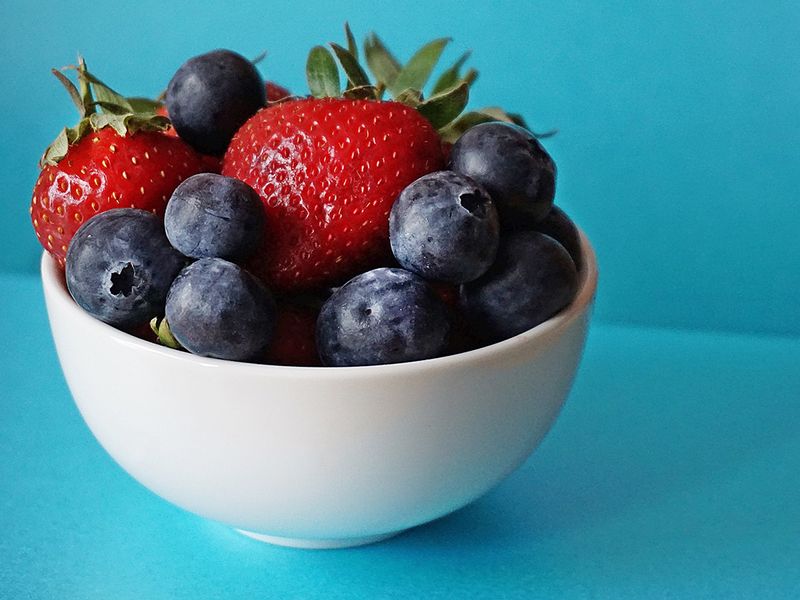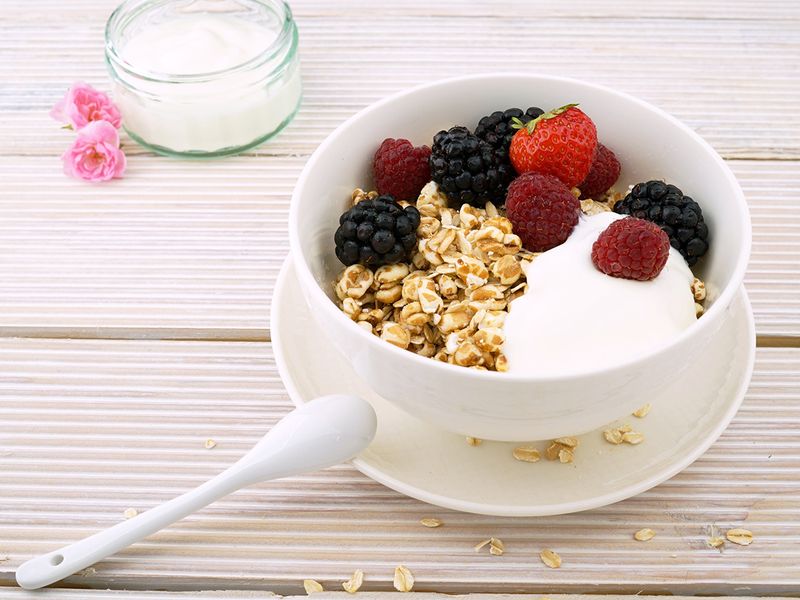
We see you, fellow foodies, eyes lighting up at the mere mention of a perfectly crafted meal. That final bite, the one crowned with a delectable dessert? That's pure sensory bliss. But wait, there's more to the story! Because beyond the joy on your palate, the food you choose affects your mental well-being in profound ways. It's time to ditch the ‘just food’ mindset and discover how fueling your body with the right choices can empower your mind and unlock its full potential.
The brain foods

Munawara Yahaya, Dubai-based clinical dietician explains, that our mental health clearly relies on the well-being of the brain, and for that to be in good shape, the food we consume plays a crucial role in achieving this balance. As she explains, the entire integrity and functionality of the brain hinges on the stability of neurons and the controlled rhythmic transmission of neurotransmitters.
Notably, about 90 per cent of serotonin, a key neurotransmitter regulating mood and sleep, is manufactured in the gut rather than the brain. Yahaya asserts that people who opt for healthier diets like the Mediterranean or a Japanese diet that is rich in whole foods, antioxidants, fruits and vegetables, are 25 per cent less likely to suffer from depression, compared to those who consume a Western diet, that is high in red meat, poultry and processed foods.
Breaking down the idea of ‘brain foods’, Yahaya adds that these kinds of foods are rich in antioxidants, vitamins, minerals, healthy fats and amino acids. “A balance of these components in our diet contributes significantly to our mental well-being,” she says. You need your share of complex carbohydrates too, she says. So, opt for grains, fruits, vegetables, that provide sustained energy, promote steady blood sugar levels, which also support serotonin production.
We take you through the entire list.
Salmon anyone? Get your Omega-3 fatty acids in place
Sometimes, an extra slice of salmon might do you a lot of good.
Fish, or particularly fatty fish, are rich sources of Omega-3 fatty acids, explains Jayakumar Kannan, consultant endocrinologist, Aster Clinic, Al Muteena, Deira. Omega-3 fatty acids are healthy unsaturated fats, that are believed to lower blood levels of beta-amyloid, which is the protein that forms damaging clumps in the brains of people with Alzheimer's disease.
According to Yahaya, it reduces inflammation, which contributes to depression and anxiety and can help your cognitive function. Moreover, fatty fish is a source of Vitamin D, which also plays a role in mood regulation and the deficiency of this vitamin has often been linked to depression.
It’s probably advisable to eat fish that’s less in mercury, such as salmon, cod, canned light tuna, and pollack. However, if you prefer to not eat fish, make sure your diet includes krill oil, walnuts, peanuts, sunflower seeds and avocados.
A few berries a day and some dark chocolate: Source for antioxidants

Potent antioxidants: That’s a crucial ingredient for a diet that benefits well-being.
“They play a vital role in combating degenerative disorders,” explains Kannan. And they are found in blueberries, red cabbage, green tea, dark chocolate, pumpkin seeds and beans. They’re also present in fruits, vegetables and whole grains. “They combat the free radicals that damage brain cells and can contribute to protect against cognitive decline and mood disorders,” adds Yahaya.

Potential antioxidants play a vital role in combating degenerative disorders. They are found in blueberries, red cabbage, green tea, dark chocolate, pumpkin seeds and beans...
Have a helping of berries too; it’s good for your memory. They are also rich in flavonoids, which are natural plant pigments that provide the berries with their colourful hues. According to a 2012 study titled Dietary intake of berries and flavonoids in relation to cognitive decline, done by researchers at US-based Harvard's Brigham and Women's Hospital, women who consumed two or more servings of strawberries and blueberries each week delayed memory decline by up to two-and-a-half years.
A diet rich in all the vitamins
Fish, legumes, poultry, and leafy greens are particularly rich in Vitamin B12 and B6, as Yahaya explains. These are essential for neurotransmitter production, cognitive function and can contribute to controlling depression and anxiety.
Kannan breaks down the essence of the vitamins:
• Vitamin E: Found in asparagus, Brussels sprouts, pomegranates, and shellfish.
• Folic Acid, Vitamin B9: This influences the levels of dopamine levels and is also present in asparagus, Brussels sprouts, pomegranates, and shellfish.
• Vitamin B12: This is important for overall brain health.
• Vitamin B6: This helps in the production of melatonin, and promotes better sleep. You’ll find them in grapes, barley, broccoli and pistachios.
• Vitamin B1 (Thiamine): Found in brown rice, barley, oatmeal, and popcorn.
• Vitamin D: Essential for overall health, with sunlight exposure being a primary source.
• Vitamin C: Found in Indian gooseberry, oranges, lemons, kiwi, bell peppers, and tomatoes.
Kimchi and yoghurt: Why you need probiotics

Kimchi doesn’t just flavour a good meal; it is deeply linked with your mental and physical health along with other probiotic foods.
If you indulge in some fermented foods like yoghurt, kimchi, and sauerkraut, it can help in regulating your mood as well as serotonin production, explain the experts. These fermented foods contain beneficial bacteria that support gut health.
Fermented foods like yoghurt, kimchi, and sauerkraut contain beneficial bacteria which support gut health, which is linked to mood regulation and serotonin production.
A cup of coffee

A steaming cup of hot coffee can work wonders for your memory, and put you in a better mood.
In a 2014 study published in US-based academic journal, the Journal of Nutrition, participants with higher caffeine consumption scored higher on tests of mental function. Another study also noted that the caffeine might also help solidify new memories. In fact, a 2014 research titled Post-study caffeine administration enhances memory consolidation in humans at John Hopkins University, asked people to study a series of images and then take either a placebo or a 200-milligram caffeine tablet. Those who took caffeine, were able to identify the images on the following day.
Coffee also contains phenolic compounds, which are substances that are found in plants, and reduces risk of a stroke. It is also rich in polyphenols. The inflammatory and antioxidant properties of this play an important role in maintaining heart and brain health. However, the consumption has to be controlled.
The overall dietary patterns
There is no ‘magical’ diet that will suddenly light up your mood, but there are several dietary patterns that you can try, which are known to benefit both your physical and mental well-being.
For one, the Mediterranean diet, according to Yahaya. “This diet emphasises fruits, vegetables, whole grains, legumes, healthy fats like olive oil, and moderate amounts of fish and poultry. And there are high chances as research has proved, this contributes to reducing depression symptoms, and enhance cognitive function,” she says.

The Meditarranean diet emphasises fruits, vegetables, whole grains, legumes, healthy fats like olive oil, and moderate amounts of fish and poultry. And there are high chances as research has proved, this contributes to reducing depression symptoms, and enhance cognitive function...
Another option, is the Dietary Approach to Stop Hypertension, called the Dash Diet. It’s quite like the Mediterranean diet, and it focuses on fruits, vegetables, whole grains, low-fat dairy while limiting saturated fats, red meat and added sugars. This also improves the mood, reduces stress and promotes brain health, asserts Yahaya.
She also recommends a blend of the two, which is called a ‘mind diet’. “This dietary pattern specifically targets brain health, by combining elements of the Mediterranean and Dash diets with additional emphasis on leafy greens, berries, nuts, and seafood. It has the potential to improve cognitive function and possibly reduce the risk of dementia,” she says.









